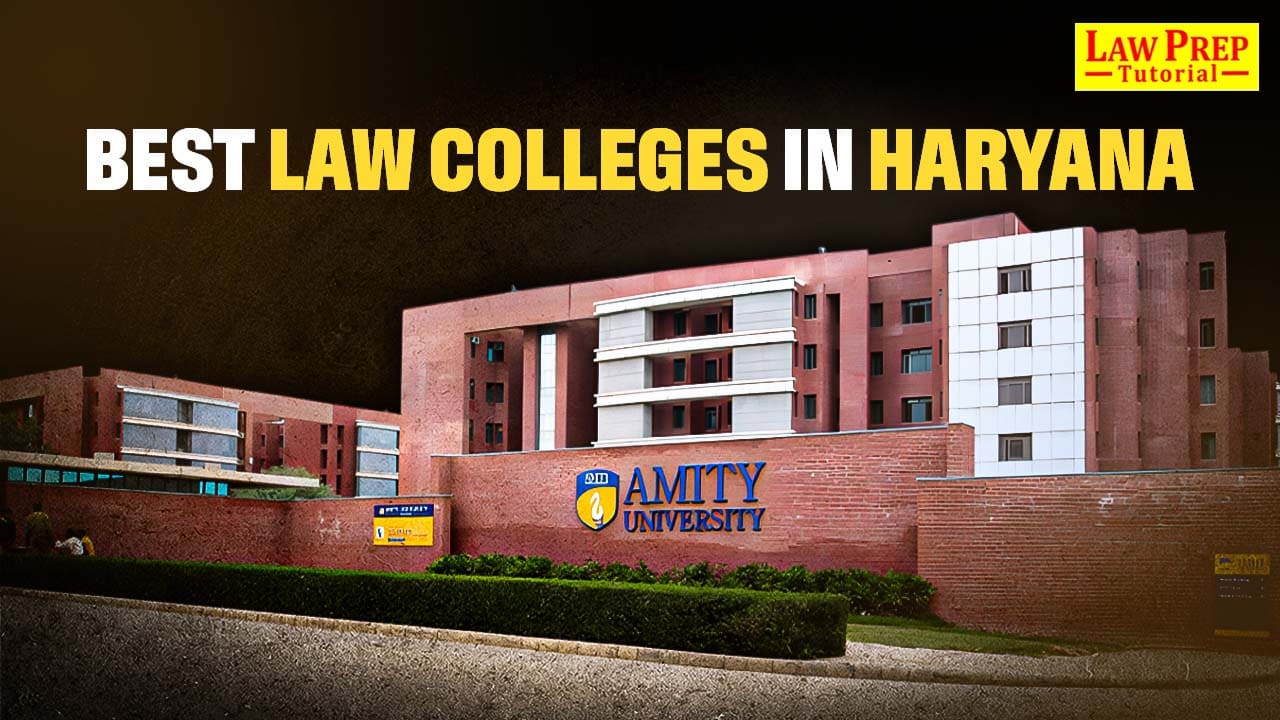A common confusion among students is the use of the terms law school and law college, which are often used interchangeably. While both refer to institutions that offer legal education, they are not exactly the same.
Law schools are specialized institutions or departments focused solely on law and legal studies. On the other hand, law colleges are usually affiliated with larger universities, offering a law degree as part of a broader academic structure.
Understanding the difference between law school and law college can help you make an informed decision. Here, we’ll break down law school vs law college—covering everything from curriculum and facilities to career opportunities and costs.
What is Law School?
A law school is a specialized institution that focuses primarily on legal education and training. It offers programs such as LLB, LLM, and PhD in law, with a curriculum designed to develop legal knowledge, critical thinking, and practical skills needed for the legal profession.
Law schools are dedicated to fostering expertise in various branches of law, including criminal law, corporate law, international law, and constitutional law.
Top Law Schools in India
- National Law School of India University (NLSIU), Bangalore
- NALSAR University of Law, Hyderabad
- National Law University (NLU), Delhi
- The West Bengal National University of Juridical Sciences (WBNUJS), Kolkata
- National Law Institute University (NLIU), Bhopal
- National Law University, Jodhpur
- Gujarat National Law University (GNLU), Gandhinagar
- Jindal Global Law School (JGLS), Sonipat
- Faculty of Law, University of Delhi
- Indian Law Society’s Law College (ILS), Pune
- Amity Law School, Noida
- Christ University School of Law, Bengaluru
What is Law College?
A law college is an institution that offers legal education but is typically affiliated with a larger university. Unlike standalone law schools, law colleges operate under the broader academic framework of a university, following its rules, curriculum guidelines, and administrative regulations.
Law colleges offer undergraduate and postgraduate law degrees such as LLB, LLM, and sometimes diploma courses, in line with the university’s academic structure.
Law Colleges in India
- Government Law College (GLC), Mumbai
- Faculty of Law, Delhi University (DU)
- Bharati Vidyapeeth New Law College, Pune
- Jitendra Chauhan College of Law (JCCL), Mumbai
- Dr. Ambedkar Government Law College, Chennai
- Banaras Hindu University (BHU) Faculty of Law, Varanasi
- Faculty of Law, Aligarh Muslim University (AMU)
Read:
What is Law University?
A law university is a specialized institution of higher education that focuses primarily on offering legal education and research in the field of law. Unlike general universities that offer a wide range of subjects, a law university is dedicated solely to legal studies and training.
Law universities offer undergraduate (LLB), postgraduate (LLM), and doctoral (PhD) programs in law, along with various specialized courses like diplomas in specific legal areas.
Curriculum, Facilities, and Approach at Law Schools
Curriculum
Law schools offer a comprehensive, research-oriented curriculum that goes beyond theoretical learning. Students engage in moot courts, legal clinics, internships, debates, and case studies to apply their knowledge in practical scenarios.
Facilities
Law schools are often equipped with specialized facilities such as moot courtrooms, legal aid clinics, law libraries, and research centers focused on different areas of law. These facilities support hands-on learning and help students gain real-world legal experience.
Approach
The approach at law schools is typically student-centric and experiential, with a focus on legal research, analysis, and practice. Students are encouraged to think critically about the law, engage in debates, and participate in internships to develop their practical skills.
How Law Colleges Operate?
- Affiliation with Universities: Law colleges are governed by the academic calendar, syllabus, and guidelines set by the affiliated university. While the university provides the degrees, the law college functions as a department within the larger institution, often sharing resources with other faculties like arts, science, or commerce.
- Curriculum and Examination: Law colleges follow a curriculum prescribed by the university they are affiliated with. This includes a combination of classroom lectures, exams, and practical components like moot courts or internships, though the emphasis may lean more toward theoretical learning.
- Facilities: Compared to standalone law schools, law colleges may have fewer specialized facilities dedicated solely to legal studies. They often share libraries, lecture halls, and other resources with the larger university departments.
Read About: Extra-Curricular Activities in Law Schools & Colleges
Difference Between Law School and Law College
A law school is a specialized place just for learning about law, with more focus on practical experiences like moot courts and internships. A law college, on the other hand, is part of a bigger university and focuses more on classroom learning, following the university’s rules and curriculum.
Law School vs Law College
Find complete break down of difference between law college and law school:
| Aspect | Law School | Law College |
| Affiliation | Typically autonomous or may have limited affiliation with a university, often having more control over curriculum and administration. | Usually affiliated with a larger university and operates as a department under its regulations. |
| Focus | Specializes entirely in legal education, with a focus on research, practice, and critical legal thinking. | Offers legal education but under the framework of a university, often combining it with a more traditional academic approach. |
| Curriculum | Emphasizes practical training, including moot courts, legal clinics, internships, and research. | Follows a university-prescribed curriculum, with a stronger focus on theoretical learning and exams. |
| Facilities | Often has dedicated facilities like moot courtrooms, legal aid clinics, and research centers. | May share facilities with other departments of the university, with fewer specialized legal resources. |
| Autonomy | Generally has more freedom to design courses and introduce new subjects. | Must follow the guidelines and curriculum set by the affiliating university. |
| Admissions | Competitive entrance exams like CLAT, AILET, and LSAT India are usually required. | Admissions are based on university entrance exams or merit-based admissions specific to the affiliated university. |
| Career Opportunities | Often provides better networking opportunities, internships, and campus placements, especially from prestigious law schools. | Career opportunities may depend more on individual effort, though top law colleges still offer good placements. |
| Examples | National Law Universities (NLUs), Harvard Law School, Oxford Faculty of Law. | Government Law College, Mumbai; Faculty of Law, Delhi University. |
| Student Life | Focuses heavily on moot courts, legal research, internships, and international exposure. | May offer fewer practical opportunities, with more emphasis on traditional academic life. |
Checkout: CLAT, LSAT and AILET
Law School vs. Law College: Which One to Choose?
Choosing between a law school and a law college depends on your career goals, learning preferences, and resources. Here’s a guide to help you decide:
Choose Law School if:
- You want a specialized legal education
- You prefer a dynamic, research-driven environment
- You aim for top-tier placements
- You can manage higher fees
Choose Law College if:
- You want a more affordable education
- You prefer a broader academic environment
- You’re looking for flexibility
- You don’t mind a more theoretical approach
FAQs About Law School and College
Yes, law school is a specialized institution focused solely on legal education, while law college is part of a larger university offering law as one of its programs.
Yes, law schools are often autonomous or specialized, while universities offer a variety of courses across different disciplines, including law.
No, law school is focused entirely on legal studies, whereas a law college is affiliated with a university and offers law along with other academic programs.
No, law school is often more autonomous and focused solely on legal education, whereas law colleges are integrated into universities and follow broader academic structures.
National Law Universities (NLUs) like NLSIU Bangalore, NALSAR Hyderabad, and NLU Delhi are prominent law schools in India.
Examples of well-known law colleges include Government Law College (GLC), Mumbai, and Faculty of Law, Delhi University.
Suggested Reading:










